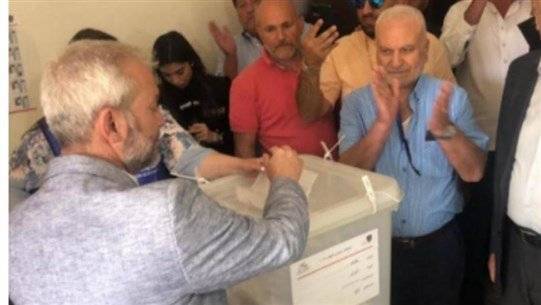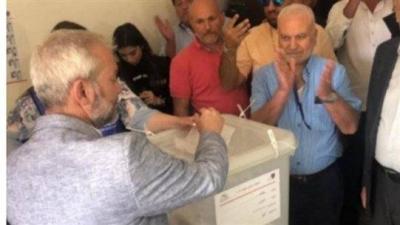The long election day in the Baalbek-Hermel district began early after months of preparations for the electoral event, accompanied by sectarian tensions and a general mobilization to rally support and encourage people to head to the polling stations, along with coercive and threatening measures. Unlike the 15 electoral districts in Lebanon, the Baalbek-Hermel district carries a unique flavor due to its intertwined geographical and sectarian characteristics, making the contest here symbolically significant for both the Christian and Sunni communities. Over several electoral cycles until 2018, electoral manipulations and majority laws allowed certain powers to monopolize the representation of the two sects, which today are trying to regain this representation due to the absence of the "Future Movement" on the Sunni scene, including Baalbek, following Prime Minister Saad Hariri's decision to withdraw and leave the sect vulnerable to manipulation by political opponents. The electoral alliance with the "Lebanese Forces" in 2018 in the Baalbek-Hermel district allowed them to secure a Maronite seat, just as the "Future Movement" secured one of the two Sunni seats.
More than 341,000 voters in Baalbek-Hermel are spread across 590 polling stations to elect ten deputies (6 Shia, 2 Sunni, 1 Maronite, 1 Catholic). Voters started arriving continuously since 7 AM to begin the voting process. Prior to this, ballot boxes were distributed at the Baalbek Municipal Union center to the heads of the polling stations and their assistants, under the supervision of Baalbek-Hermel Governor Bashir Khodr. The Lebanese Army had completed its deployment across Lebanon and patrolled the main roads near polling stations, while members of the Internal Security Forces received the boxes and secured them at designated centers.
As the early morning hours began with very low voter turnout, violations were reported in several polling stations, where power outages occurred for several minutes. Representatives from competing lists were absent from many polling stations across the Baalbek-Hermel districts, with the presence limited to representatives of the "Hope and Loyalty" list. Additionally, representatives from the "Lebanese Forces" were expelled from several Bekaa towns, leading to physical assaults on one of them, causing injuries. This prompted Lebanese Forces leader Dr. Samir Geagea to appeal to Prime Minister Najib Mikati and Interior Minister Bassam Mawlawi to restore the representatives to their posts and hold accountable those responsible. There were also attempts to manipulate citizens through certificate withdrawals.
The achievement that the Lebanese government claimed to have accomplished was incomplete, and the democratic festivity was scarcely apparent in Baalbek-Hermel. Violations and pressures were exerted in several regions, with certain polling stations showing a lack of diverse representation amongst party agents and a higher turnout in those places compared to others featuring representatives from various lists. This discrepancy in voter turnout was particularly noticeable between the electoral machines of "Hezbollah" and the "Lebanese Forces." The overall scene mirrored that of all Lebanese regions, with turnout rates being nearly identical. The Maronite and Shia communities each recorded over fifty percent, while the Sunni turnout was below 35%, resulting in an overall turnout of 53 percent, with a mid-day record of 28 percent. It was also observed that some polling stations were not equipped with specific entrances for individuals with disabilities.
While six lists competed for ten seats in Baalbek-Hermel, the battle centered around the Maronite seat held by MP Antoine Habchi. The intensity of the contest increased in the afternoon, with church bells ringing across various areas of Deir Al-Ahmar to encourage people to vote. The Shia duo also worked to urge their supporters to head to the polling stations before the boxes closed. As 7 PM approached, campaigns called on people to head to the centers to secure their vote.
Polling boxes closed at 7 PM across various Bekaa regions, and the vote counting process began within the polling stations, set to be transported to the Baalbek Court to aggregate the numbers and announce the results for the entire district. Notably, the electoral threshold had not increased compared to 2018, remaining below 18,000 for this cycle.
— Issa Yahya, Nidaa Al-Watan




